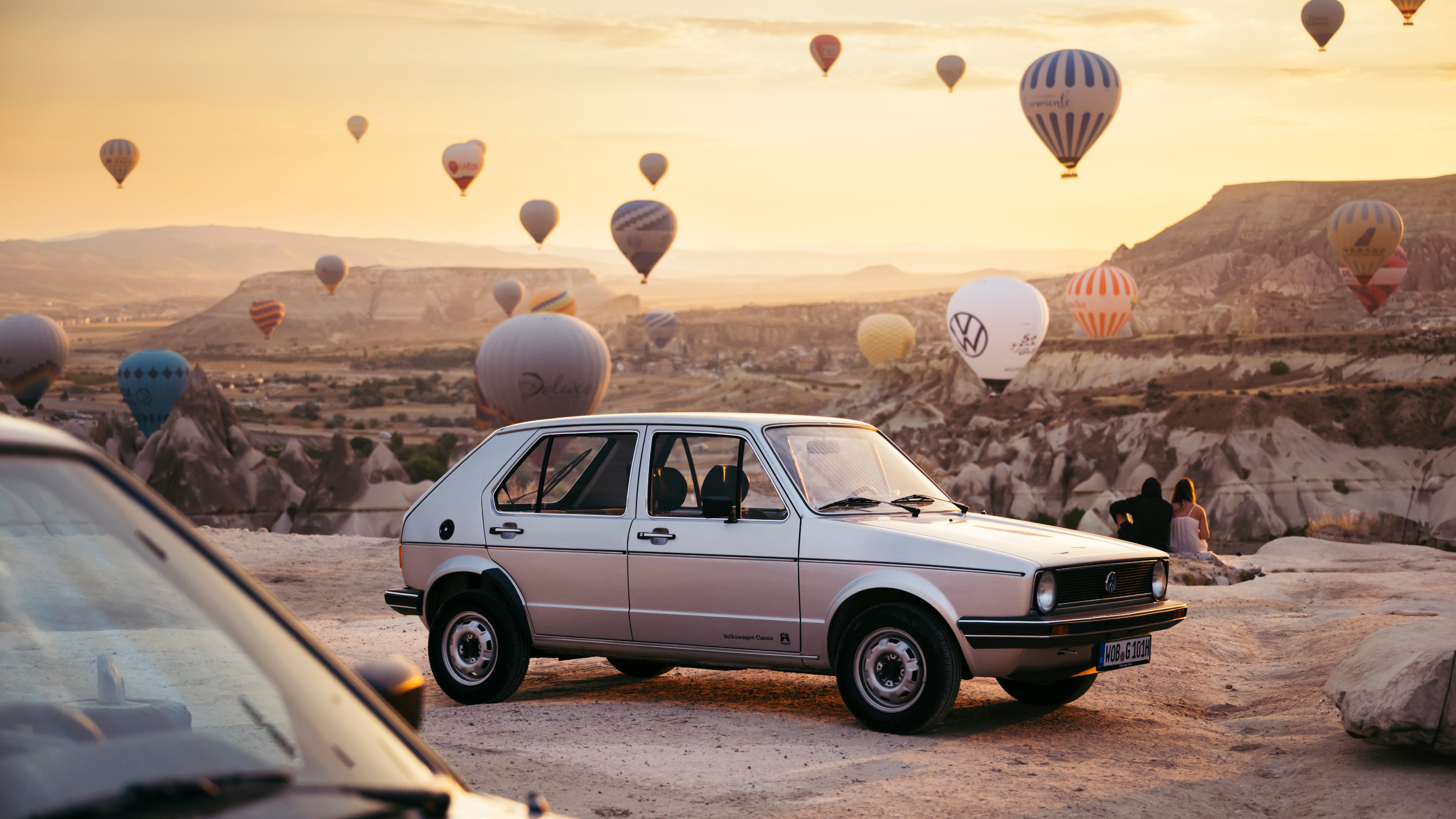
The Volkswagen Golf is celebrating its 50th birthday, so Wallpaper* went in search of some balloons. Welcome to arid and ancient Cappadocia, in eastern Turkey, with its flame-like ‘fairy chimney’ rock formations and fresco-covered cave churches cut into the jagged valley walls.
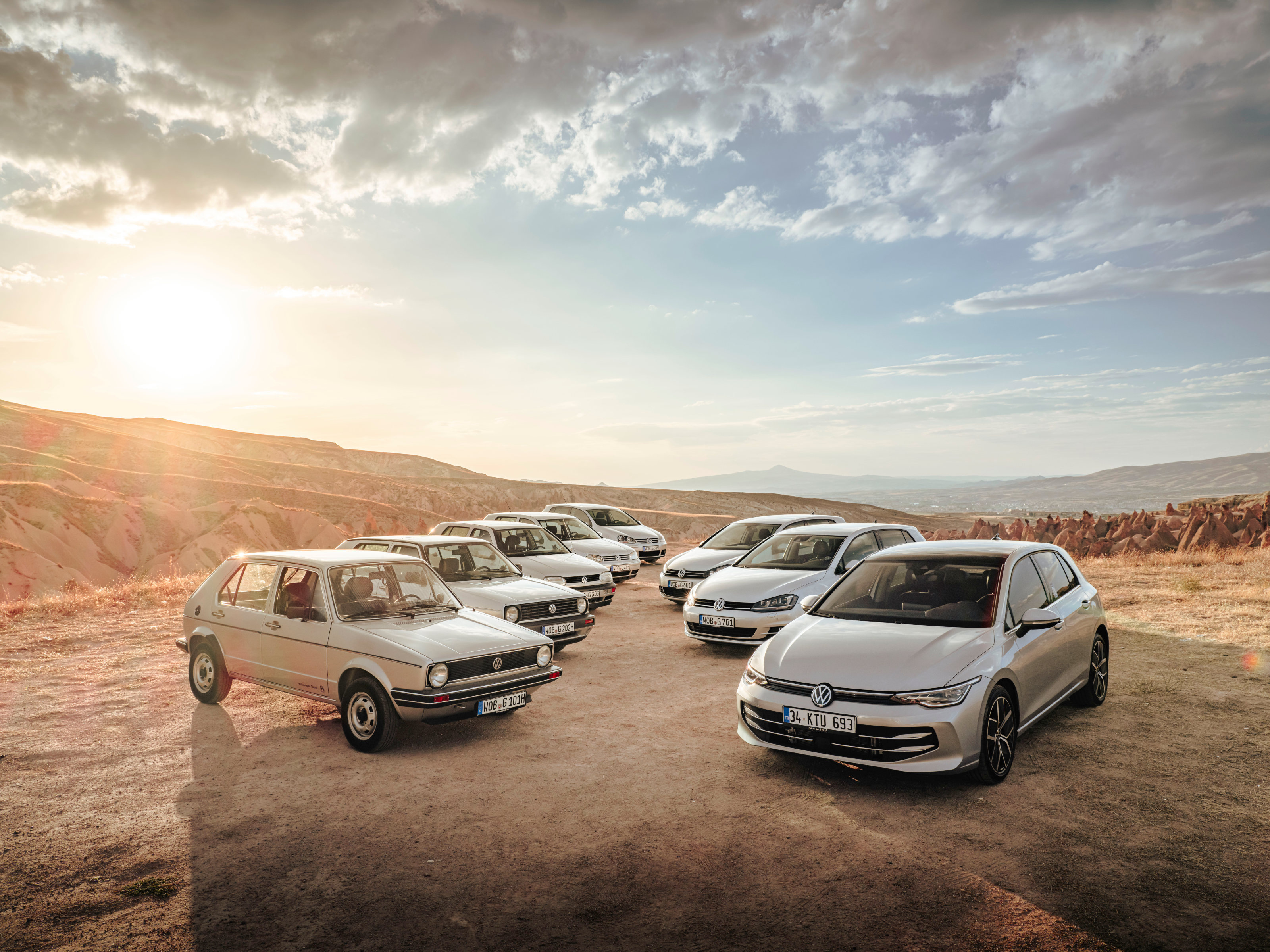
Once a hotspot for troglodytes, it now caters to tourists. The town of Göreme, which was a centre of early Christianity, sits at the heart of a network of valleys filled with these fantastical boulders and otherworldly hermitages. The landscape is perhaps best appreciated from the air, which is why in the last couple of decades Göreme has become the world headquarters of hot air ballooning. Up to 200 balloons take off at sunrise every morning. The Golf only needs 50.
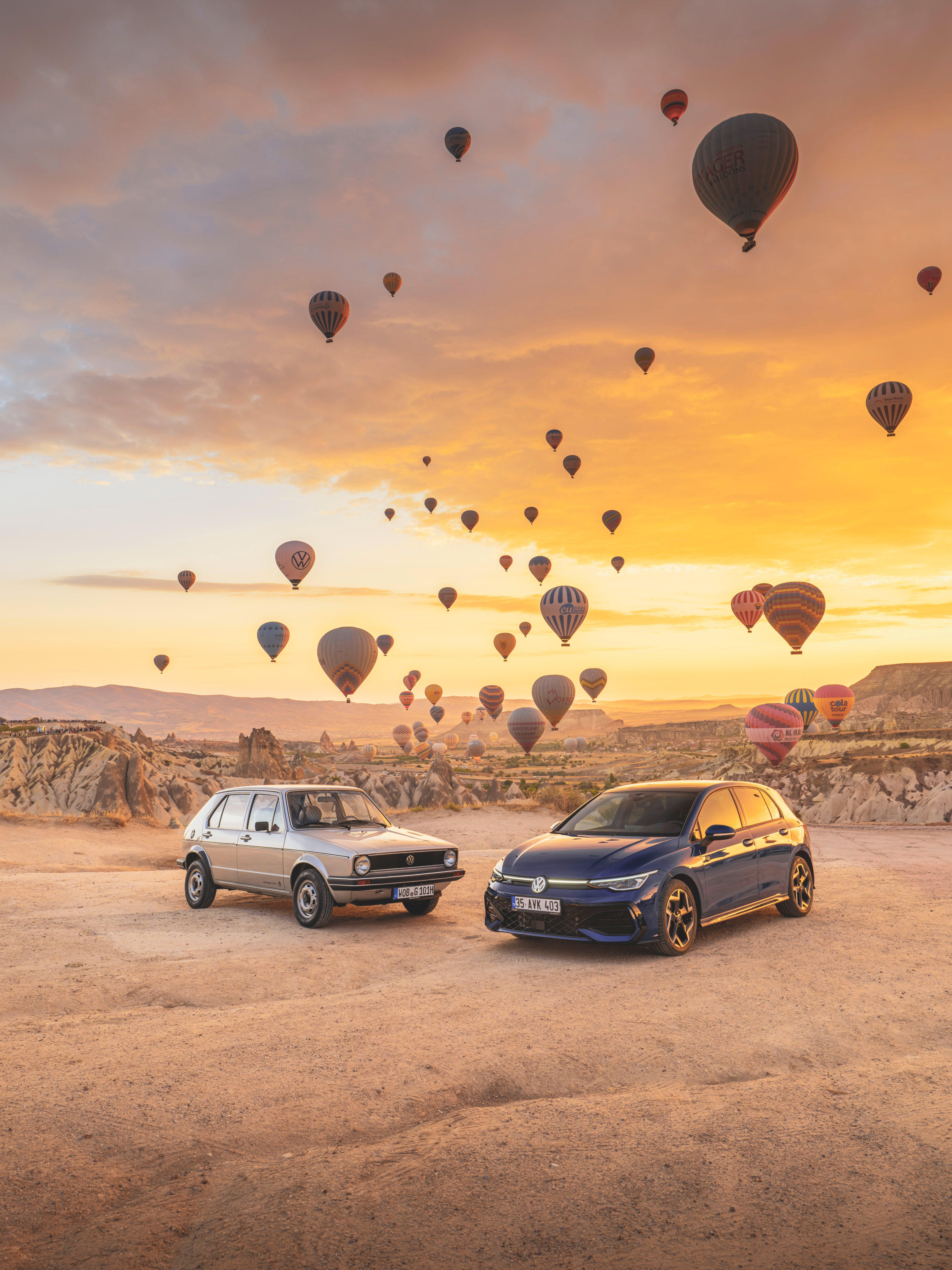
The Wolfsburg-built Mk1 Golf was the people’s car for the post-hippie era, with an angular shape and a steep hatchback that was a U-turn on the Beetle and which remains a highlight of genius designer Giorgetto Giugiaro’s CV. Reduced to the essentials, the lines are clean and the C-pillar, which lives on in the current, 2024 Golf, is striking.
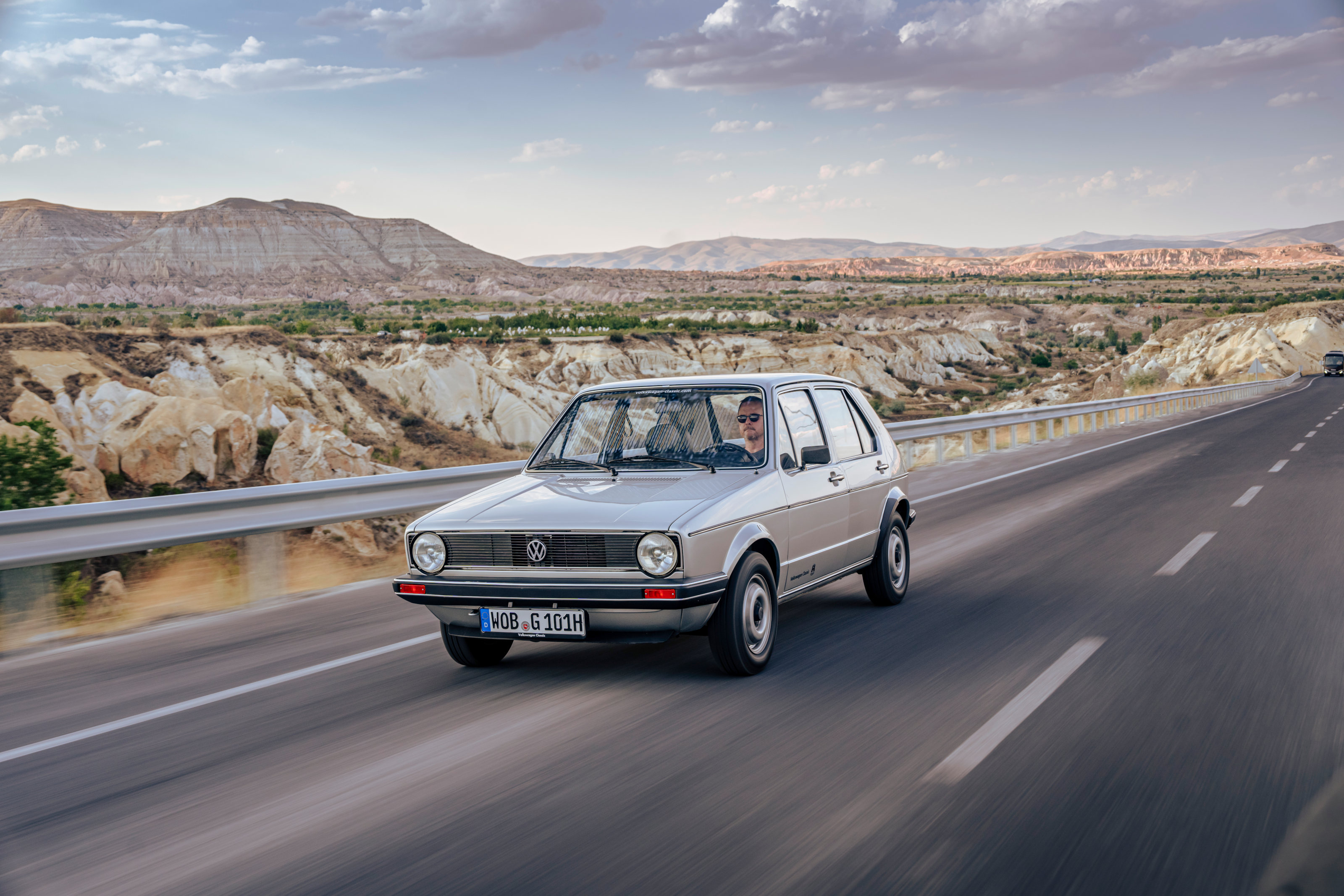
In May 1974, when the Mk1 first came to the market, the Oil Crisis was still causing shockwaves at the petrol pumps, and here was a small, beautifully engineered and chic small car that appealed to almost every section of society. Like the Mini, it was essentially classless. Thirty-seven million Golfs have since been sold.
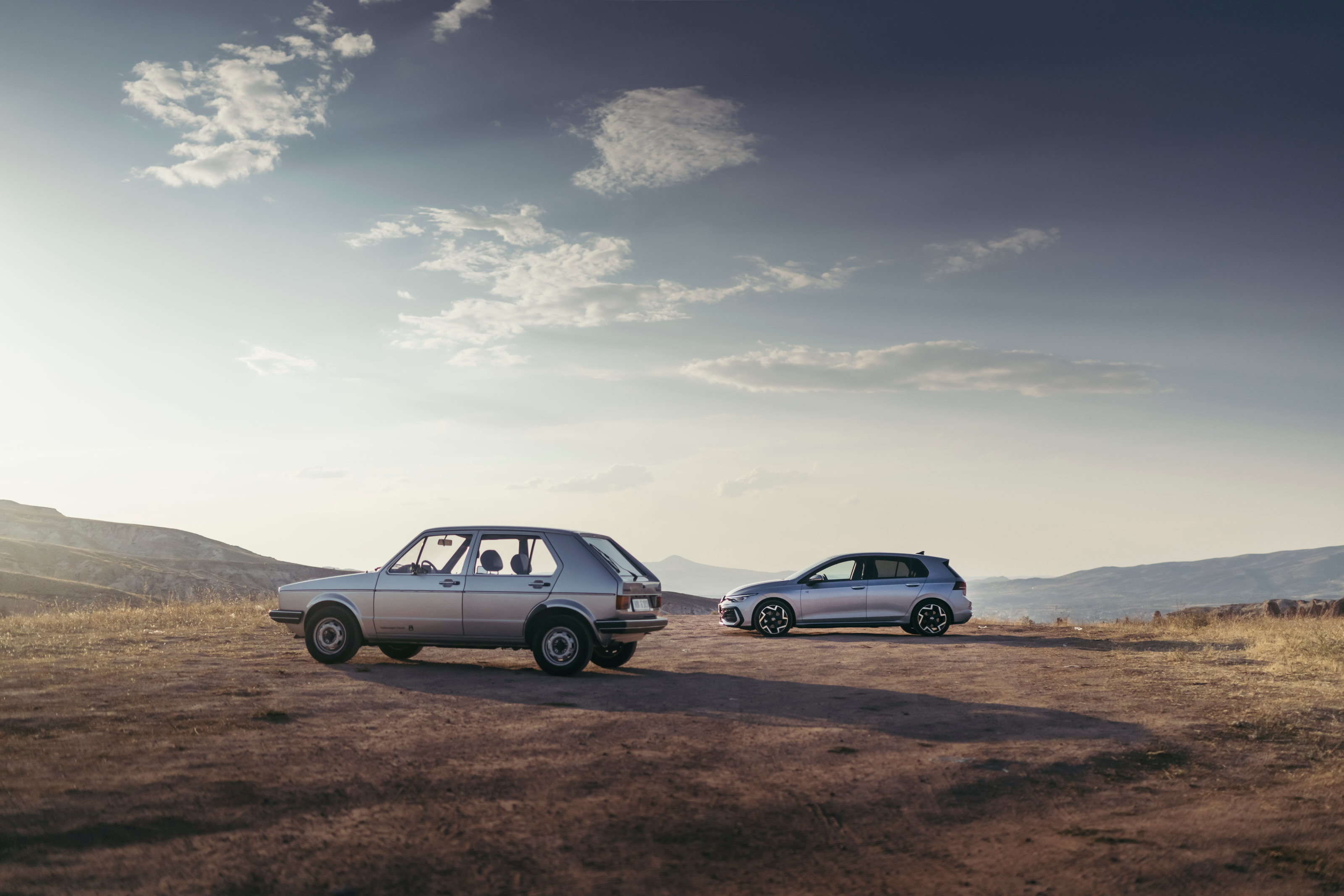
VW brought all eight generations to Cappadocia for us to sample. Available as a three- or five-door, each generation has seen the little Golf swell slightly, becoming more rounded, accommodating safety systems, more effective crash structures, and elbow room for larger or more space-sensitive humans along the way.
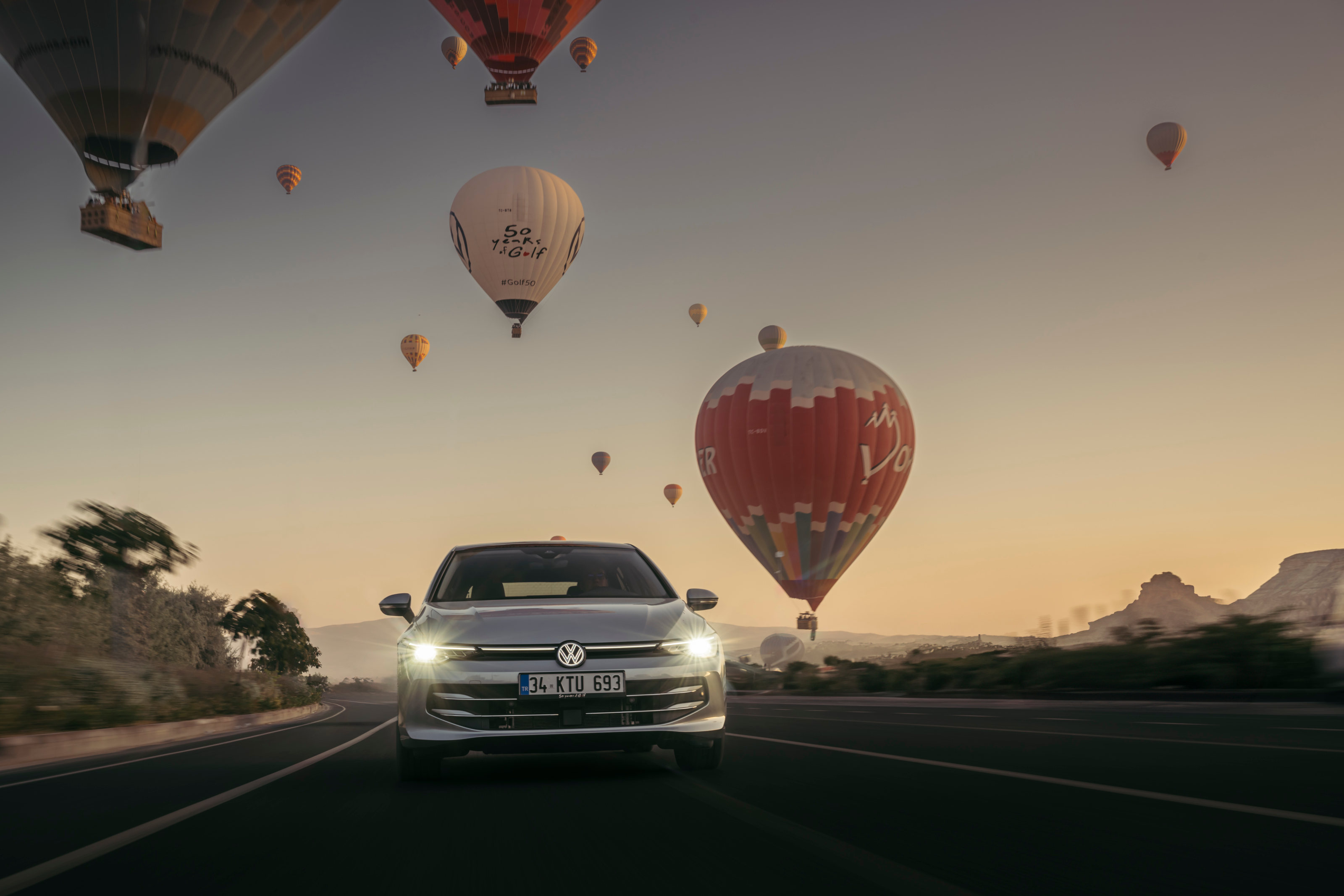
It has drifted from what has become known as the A-segment, the smallest category of passenger car, to C-segment – ie, medium. Yet it remains practical, well-proportioned and peppy even if you don’t opt for the GTI. The Mk2 followed in 1983, Mk3 in 1991, Mk4 in 1997, Mk5 in 2003, Mk6 in 2008, Mk7 in 2012 and Mk8 in 2019. Like a record collection, each era evokes strong memories.
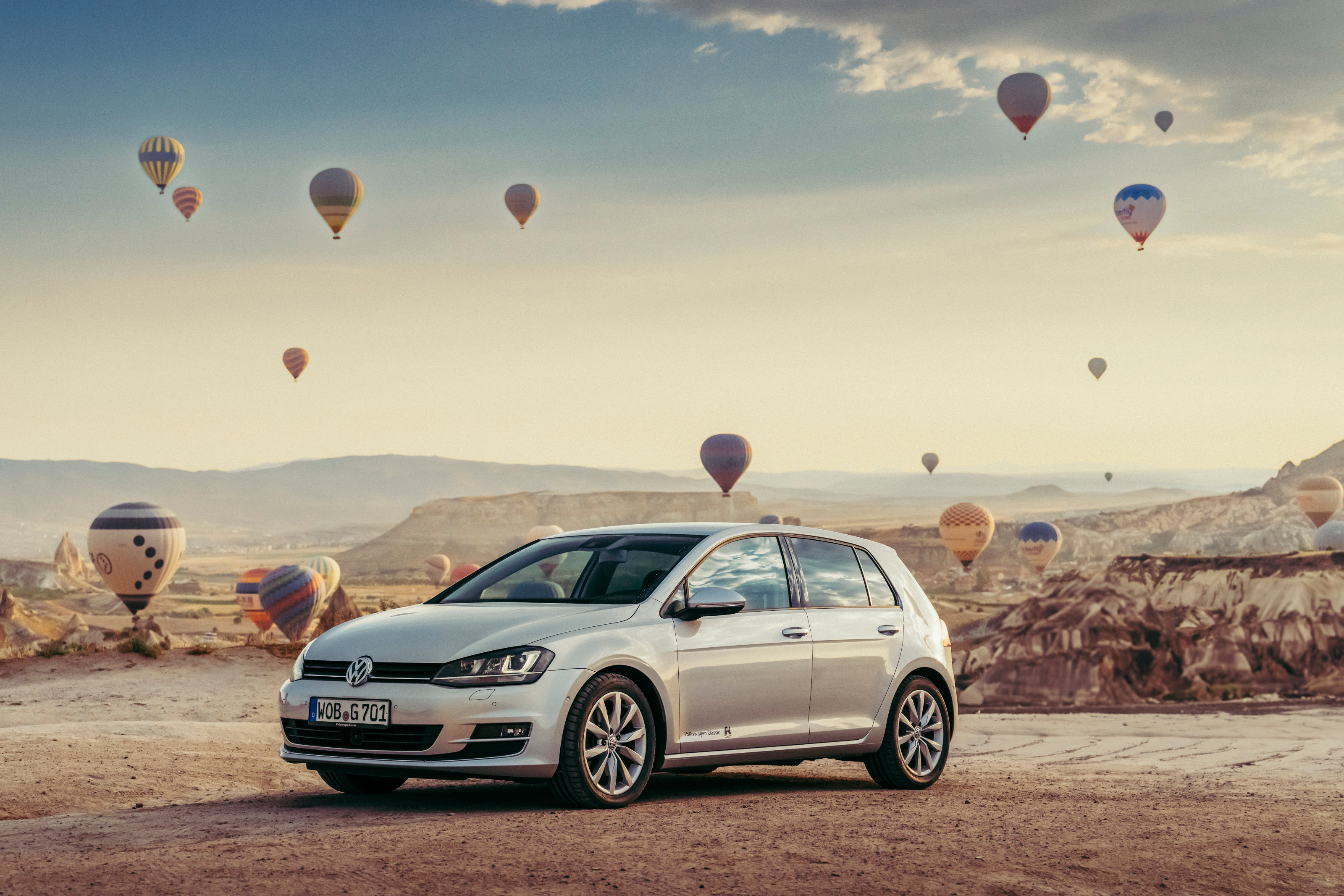
The Mk4 was a high point in terms of simple yet dynamic styling and upmarket refinement, and the one I didn’t want to give back. While Ferdinand Porsche’s game-changing Beetle democratised mobility, his grandson Ferdinand Piëch’s Mk4 Golf democratised luxury. This was an Audi in all but name. Having been for a play in the first and most recent models, I scooped up the keys to the Mk4 V6 4motion, cranked up some 1990s beats and blasted it across the honeycomb tundra of Göreme’s Love Valley.
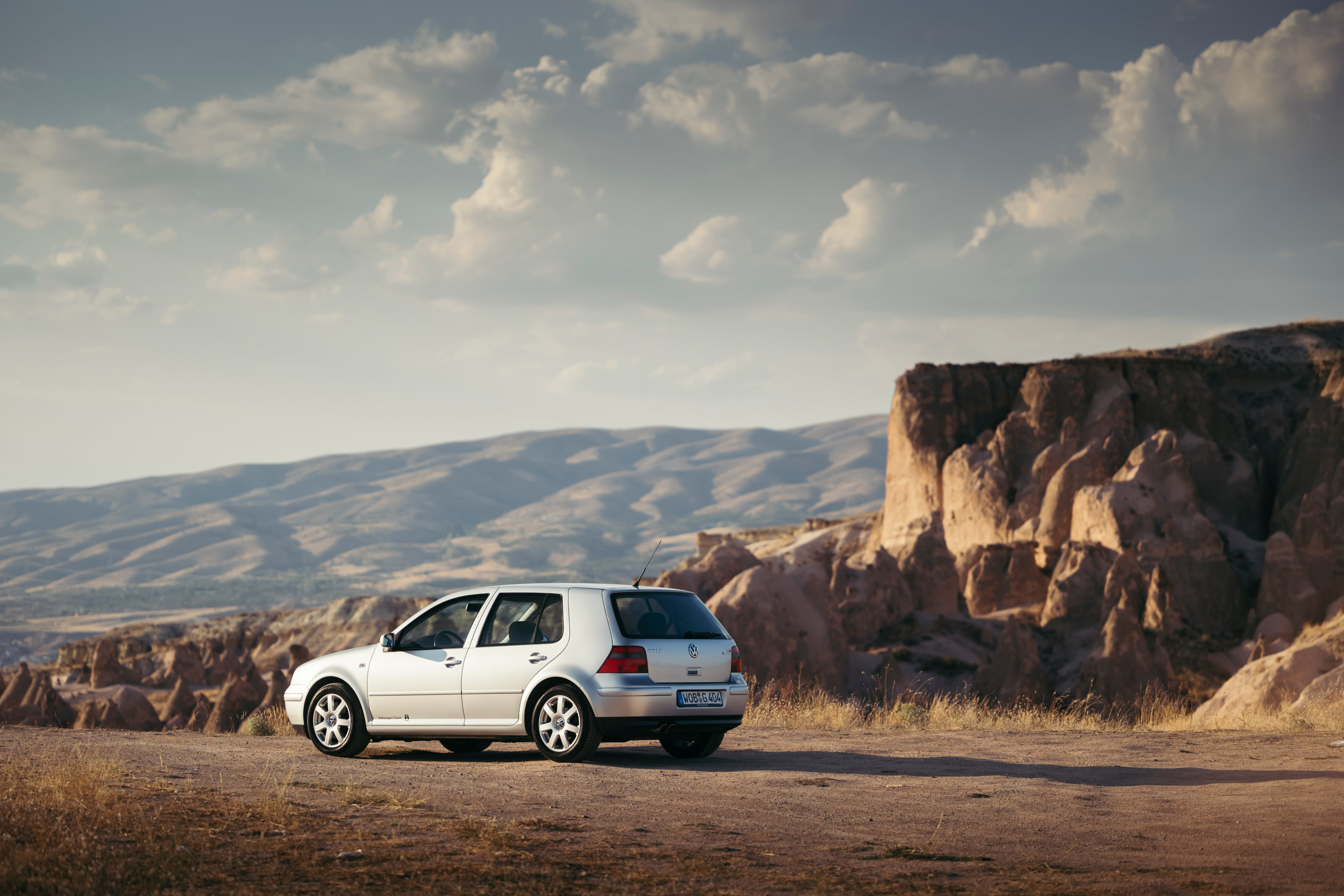
Earlier that morning, I’d stood on a high plateau to watch the balloons rise as the sun came up, the bulb-shapes intermittently glowing as the pilots ignited the burners. While the VW crew busied themselves shooting their own cars, I watched as couples posed for wedding photographs, sometimes with knackered old Chevy and Fiat convertibles. Local entrepreneurs are doing a roaring trade facilitating this sort of thing.

There’s no denying the awesome spectacle of more hot air ballons than you can count silently navigating the busy apricot sky and the hazardous dentures of the rocks below. Among them flickered a white balloon with a big VW logo on it. The following day, at 6am, I was in the wicker gondola myself, gazing down at the volcanic landscape. At 60 million years old, it has some legs on the Golf still.
Then again, Volkswagen has promised that unlike the Polo, Passat and Beetle, the Golf name will live on into the next decade and the Mk9 is set to break cover in 2028. Maybe one day the Golf will be as old as the ancient fairy chimneys and medieval monasteries hewn from the Cappadocian rocks, but it still feels young and entirely buoyant.
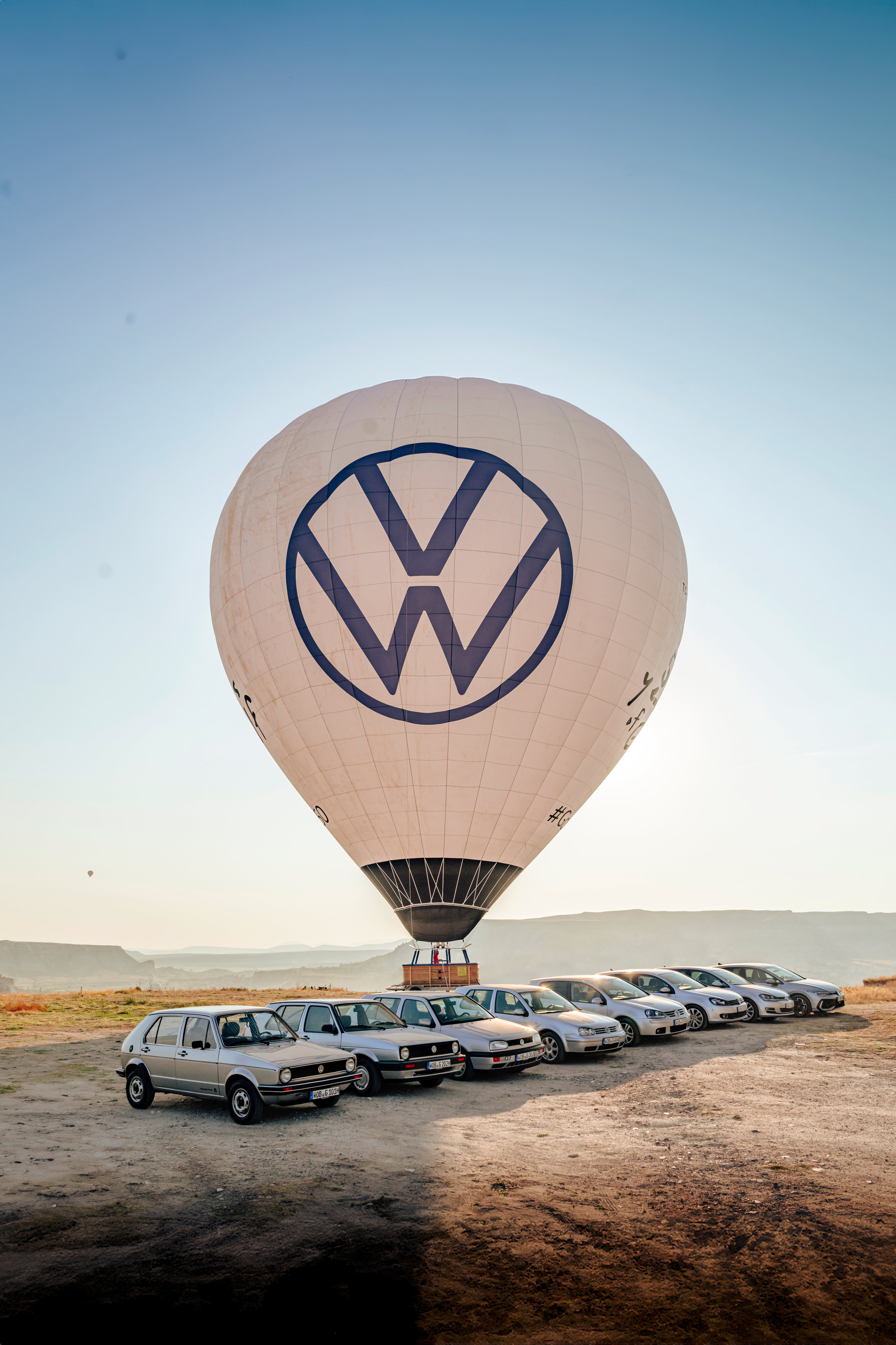
The Volkswagen Golf range starts at £27,420, Volkswagen.co.uk







